
Imago
Jan 14, 2024; Miami, Florida, USA; Former Miami Heat player Dwayne Wade reacts after learning a statue will be erected outside of Kaseya Center in 2025, during a special ceremony during halftime of the game between the Miami Heat and the Charlotte Hornets. Mandatory Credit: Jasen Vinlove-Imagn Images

Imago
Jan 14, 2024; Miami, Florida, USA; Former Miami Heat player Dwayne Wade reacts after learning a statue will be erected outside of Kaseya Center in 2025, during a special ceremony during halftime of the game between the Miami Heat and the Charlotte Hornets. Mandatory Credit: Jasen Vinlove-Imagn Images
In a year when the Utah Jazz believed the basketball Gods might finally tilt their way in the NBA draft lottery, the ping-pong balls spun a painfully familiar tale. It wasn’t just a slide from hope to heartbreak. It was a ritual repeated, a cycle etched in the franchise’s DNA. And this time, the pain was visible not just in Salt Lake City, but in the ESPN control room.
Watch What’s Trending Now!
Brian Windhorst captured the moment with rare intimacy on his latest show. “The executive producer of the Countdown Show, a guy named Greg Condis—he’s a lifelong Utah Jazz fan—and he was directing the show tonight, watching the lottery, and crestfallen,” Windhorst shared. “And so I feel the Jazz’s pain through him.”
Greg Condis may have been sitting behind the scenes in a production truck, but his anguish mirrored that of an entire fanbase that has endured decades of draft-night disappointments. He was supposed to be overseeing the camera transitions and smoothing out the live timing of ESPN’s broadcast. Instead, he watched helplessly as his team, once again, plummeted.
ADVERTISEMENT
The Jazz had entered the NBA draft lottery night with a 14% chance to claim the No. 1 pick, tied for the highest odds alongside the Wizards and Hornets. That pick would have secured Cooper Flagg, the generational talent many view as the best American prospect since Zion Williamson. But Utah dropped all the way to No. 5—the lowest outcome statistically possible for their odds. And while the Mavericks celebrated a 1.8% miracle, Utah was left sorting through wreckage.
Dwyane Wade, a minority owner of the Jazz and a man with his own scarred history of draft-day skepticism, tweeted almost immediately: “But…… There has been some great players drafted with the 5th pick!” It was a statement meant to comfort, but behind it lived both resignation and resolve.
But…… There has been some great players drafted with the 5th pick! pic.twitter.com/o29KhUM9cc
— DWade (@DwyaneWade) May 12, 2025
ADVERTISEMENT
Wade himself was the No. 5 pick in the legendary 2003 draft class—the same class that produced LeBron James, Carmelo Anthony, and Chris Bosh. He turned that modest slot into three championships, a Hall of Fame career, and an enduring legacy. But even Wade, whose presence in the Jazz ownership group has been viewed as a symbol of upward mobility, couldn’t hide the sting.
The numbers underscore the bitterness. Since the NBA flattened lottery odds in 2019 to discourage tanking, no team with the league’s worst record has landed the No. 1 pick. This year, Utah finished 17–65, tied for the worst in the league. Instead of being rewarded for a painful tank—a season in which they shut down Lauri Markkanen, fielded rosters bordering on developmental league squads, and drew a $100,000 fine from the NBA for resting players—they were punished by probability.
ADVERTISEMENT
This is not a new wound for the Jazz. They’ve never received the No. 1 pick in franchise history, not once since the lottery’s inception in 1985. The one time they drafted high, selecting Enes Kanter at No. 3 in 2011, it was with a pick acquired from New Jersey via the Deron Williams trade. Their own pick? Never moved up.
Windhorst noted this pattern with frustration: “The Jazz have like never moved up. I think the one year they got Enes Kanter—yeah, they got Enes Kanter with a Nets pick from the Deron Williams trade, right? But their pick has never moved up.”
In many ways, the Jazz are now the poster franchise for NBA draft lottery cruelty. Not just because they lost out on Cooper Flagg, but because they represent the exact kind of small-market, smartly-run organization that the lottery was supposed to help. Instead, they’re stuck on the carousel, watching larger-market teams with slimmer odds leapfrog them.
ADVERTISEMENT
The unspoken truths of a small market rebuild feat. Utah Jazz
For Jazz fans, this isn’t just about one unlucky lottery night; it’s about the gut-wrenching reality of a small-market team fighting for relevance. Danny Ainge and Justin Zanik made a calculated, high-stakes bet when they blew up the Mitchell-Gobert era. They knew getting stars to Utah through free agency is a pipe dream, and even trades can be a tough sell. So, they embraced the pain of losing, the “tank,” all for the shot at landing a game-changer like Cooper Flagg through the draft. That was the deal: endure the misery, and we’ll get the guy.
The dream of Flagg in a Jazz jersey, the one that made all those losses seem almost palatable, took a massive hit. Landing at number five instead of number one? That stings. It’s the kind of “what if” that haunts a fanbase. “What if Flagg is the next generational superstar?” “What if the guy they do get at five is just… okay? Or worse, a bust?” Suddenly, all those “manipulated injury reports and resting of healthy players,” as Sarah Todd put it, feel a lot heavier. The front office promised a path back to contention, and for many, Flagg was the clearest signpost on that path.
ADVERTISEMENT
Now, the pressure on Ainge and Zanik is immense. They sold the fanbase on a vision, and that vision just got a lot blurrier. If they nail this fifth pick, if they find a diamond in the rough who becomes an All-Star, then maybe, just maybe, the years of losing will be seen as a necessary sacrifice. But if they miss? If the Jazz are still mired in mediocrity a few years down the line? The same fans who gritted their teeth through the tank will be sharpening their pitchforks. It’s a brutal truth: the legacy of this front office, and the patience of an entire fanbase, hang on their ability to find gold where they hoped for platinum.
Top Stories
Prayers Pour In from Angel Reese, Cameron Brink & Others Over the Tragic Events in Minnesota
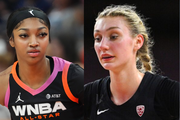
Marina Mabrey Attracts Unrivaled Attention for the Wrong Reasons Yet Again
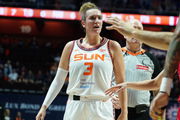
Lisa Leslie Doesn’t Hold Back Over Brittney Griner’s Flagrant Foul on Aliyah Boston

Charles Barkley Sends Strong Message After Tragic ICE Shooting in Minnesota
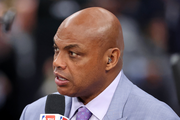
Forbes Intel Connects Caitlin Clark,18-Year-Old Pickleball Star to a Concerning WNBA Reality
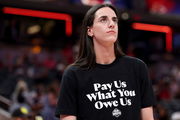
Tim Bontemps said that it’s “incredible theater” for big markets or talented teams to snag top prospects. This doesn’t offer much comfort in Salt Lake City. For Jazz fans, it can feel like the system is tilted, that even when they play the game “right” by accumulating draft capital, the ultimate prize remains elusive. It’s one thing to say you don’t need the number one pick to find a star, and it’s true, history shows that. Dwyane Wade himself is living proof.
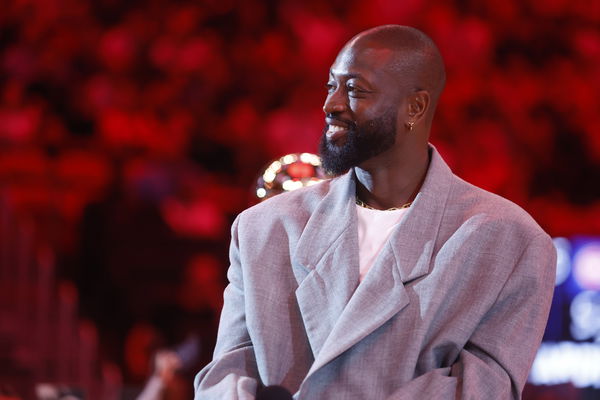
Imago
Oct 28, 2024; Miami, Florida, USA; Former Miami Heat guard Dwyane Wade is honored at halftime during the game against the Detroit Pistons at Kaseya Center. Mandatory Credit: Rhona Wise-Imagn Images
But after deliberately aiming for the bottom, falling to the lowest possible spot feels like a kick in the teeth. Ultimately, this draft lottery wasn’t just about ping-pong balls; it was a stark reminder of the precarious tightrope small-market teams walk. The Jazz made their choice: tear it down and rebuild through the draft.
ADVERTISEMENT
Now, they have to live with the consequences and prove they can still build a winner, even if the basketball Gods and the NBA draft lottery machine seem to have other plans. The hope is still there, but it’s a more cautious, more anxious hope than it was before those fateful balls dropped.
ADVERTISEMENT
ADVERTISEMENT
ADVERTISEMENT